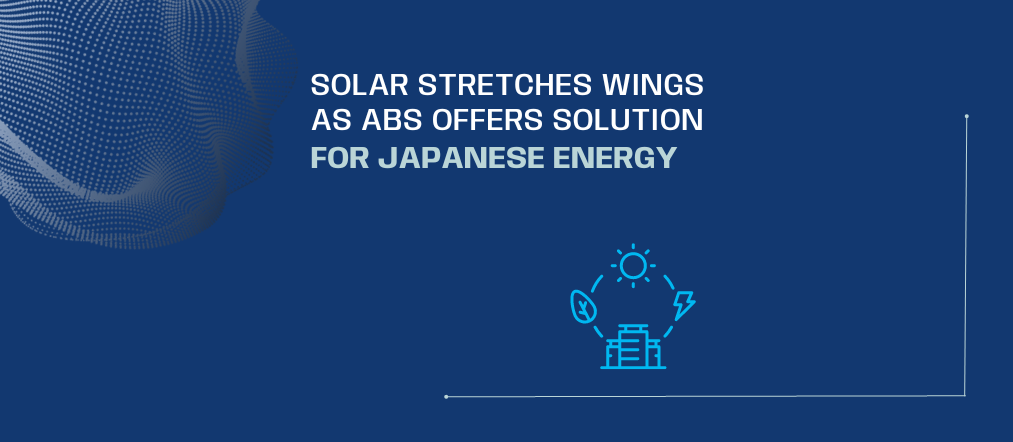Solar Stretches Wings as ABS Offers Solution for Japanese Energy
The securitization market could offer a financing solution for the energy market in Japan, where the government is pushing rooftop solar panel facilities as an alternative to nuclear power following the closure of nearly all the country’s nuclear plants in the aftermath of the 2011 tsunami and earthquake and the ensuing Fukishima accident.
The deals show the growing reach of solar ABS, which has made strides in the US over the past year or so, both in the residential and commercial sectors. Despite the recent slide in oil and gas, the inexorable rise of energy prices — some 60% of which is based on distribution and other admin charges and therefore not affected by swi underlying commodity price — solar power financing is poised to become a major asset class, so long as the industry can maintain the development of its infrastructure. Plans are afoot to create large warehouses for solar assets to aid smaller developers in coming to market, as well as to standardize documentation to make solar financing facilities more suitable for securitization.
Japan Opportunity
Nearly 18 months after first meeting Japanese financial institutions in Tokyo, Canada-based financial services company Quintal & Co is now working on two securitizations of rooftop solar leases for Japanese companies, president Charles Quintal told GlobalCapital at IMN’s ABS Vegas conference on Wednesday. One of the deals is around $90m in size, and the other is around $700m, he said. The lease agreements being securitized are understood to be 20 year contracts. The Japanese government has shuttered nearl country’s nuclear plants, most of which are based on the coast, following 2011’s Fukushima disaster. Solar leases could offer power companies a safer alternative, Quintal said.
US Development
Back on US soil, the commercial application of solar through power purchase agreements, is beginning to make its way into securitizations. During a roundtable discussion at ABS East, moderator Benjamin Cohen, CEO of T-REX Group – a firm that helps renewable investors and originators access the capital markets — showed a slide stating that over 90% of US non-residential solar project originators believe investments in solar-generating assets will exceed $1tr between now and 2030.
Secondary markets like asset sales and securitizations are expected to add to that number.
However, the large number of smaller solar developers in the commercial and industrial sector means that both asset volume and loan standardization in securitizations are lacking, said Ron Borod, senior counsel at DLA Piper, during the conference discussion.
“What is need in this market is a warehouse facility,” he said. “I’m working on a proposal now… that would involve a particularly powerful form of credit enhancement to support a large warehouse facility for these aggregation loans for solar developers so they can get to the critical mass to reach the market.”
“[Lack of] standardization was also said to be an issue in the early days of CMBS,” he added. “Everybody said you cannot possibly securitize commercial mortgages because they are non-standard and negotiated.”
“There are now standard purchase agreements posted on the website of SAPC [a US working group called Solar Access to Public Capital] which are slowly becoming the market standard, not that that’s the only thing you could use.”
Mobilization
SAPC, whose funding runs out at the end of 2014, has morphed into the Solar Energy Finance Association (SEFA). SEFA’s president, Mary Rottman, told GlobalCapital that while the group includes major US solar developers like SolarCity and SunRun, it needs the involvement of more banks and investors to help mobilize the sector.
Some solar market participants don’t want to get bogged down in industry group participation, however, claiming that the sector will enforce its own standards.
“You can join an industry group and talk about the issues, or you can just do the work,” said one solar financing expert at the Vegas conference. “We prefer to do the latter. The deals being done will become benchmarks for others.”
Residential Solar
In the residential solar space, several ABS deals are understood to be in the works at the moment.
A structured finance manager at SunPower told GlobalCapital his firm was working on a residential solar securitization, while California firms Renovate America and Renewable Funding are working on both unsecured solar loan securitizations as well as PACE transactions.
Last year, the State of Hawaii closed a $150m securitization which will finance loans for clean energy technologies for low and moderate income homeowners, renters and non-profit organizations.
Source: Global Capital
